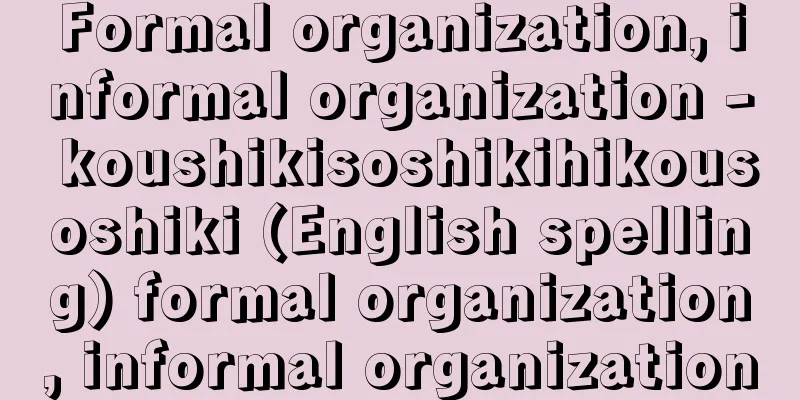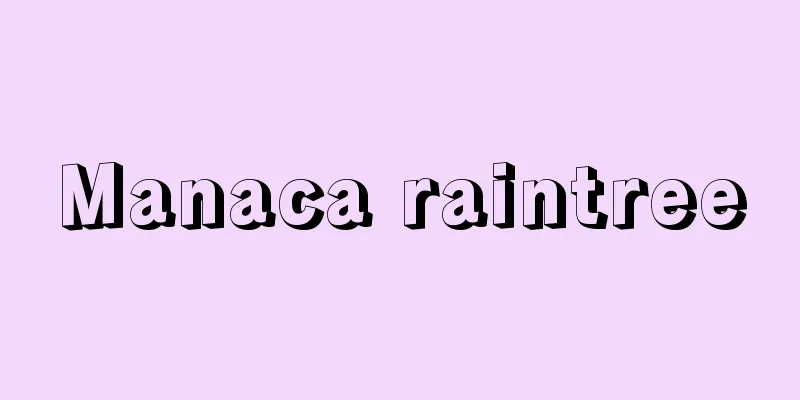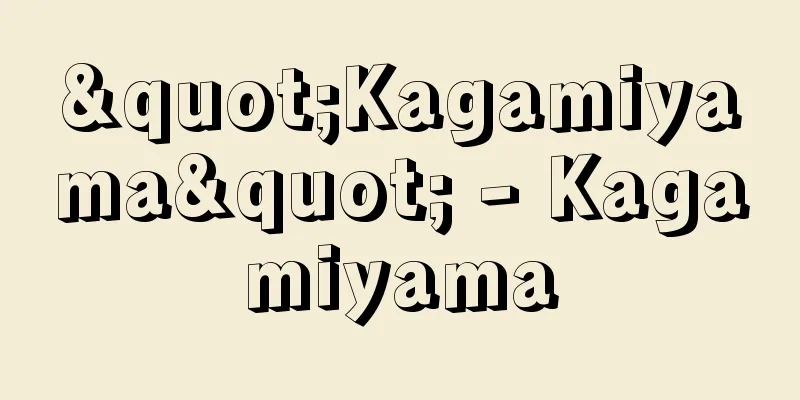Formal organization, informal organization - koushikisoshikihikousoshiki (English spelling) formal organization, informal organization

|
A formal organization is an organization that is consciously and artificially formed to achieve a certain purpose, and CI Barnard defines it as "a system of consciously coordinated human activities and forces." This is what is usually meant when we say "organization." In contrast, an informal organization is one that is formed spontaneously through contact and interaction between individuals, and refers to a social bond that does not have a conscious structure or system. Source: Heibonsha World Encyclopedia, 2nd Edition Information |
|
公式組織(フォーマル・オーガニゼーション)とは,一定の目的を達成するために意識的,人為的に形成された組織のことであり,C.I.バーナードは〈意識的に調整された人間の活動や諸力の体系〉と定義している。通常,〈組織〉といえば,これを指していう。これに対して,非公式組織(インフォーマル・オーガニゼーション)とは,個人間の接触・相互作用を通して自然発生的に形成されるもので,意識的な構造や制度をもたない社会的結合を意味する。
出典 株式会社平凡社世界大百科事典 第2版について 情報 |
<<: Official Order - Kusikiryo
>>: Lecture ceremony - Koushiki
Recommend
Sydenham's chorea (English spelling)
...Sydenham's chorea and Huntington's cho...
Pappus
...If there is a line l and a figure D on a plane...
Aung San Suu Kyi - Aung San Suu Kyi
Myanmar political leader. Born in Yangon (formerly...
Kaku
[Sound] Kaku (Wu) (Han) [Reading] Takadono [Kanji ...
Radio calisthenics - Rajio taiso
These exercises are performed to the accompanimen...
Childcare - Hoiku
The act of caring for and raising a newborn. It i...
New edition added - Shinpen Tsuika
This is a compilation of single-line laws issued ...
Périgord culture - Périgord culture
A late Paleolithic culture centered in the Périgor...
Lamartine
French poet and politician. Born into an aristocra...
Saitama Kofun Group - Saitama Kofun Group
<br /> A group of ancient tombs from the 5th...
Card system
A system for organizing books and information usin...
Grallinidae
…Both males and females sing well and also sing d...
Tricyrtis
...A perennial plant of the lily family (illustra...
Common dandelion (English spelling)
...It is a pentaploid plant, and its distribution...
Fusako Kutsumi
1890-1980 A social activist from the Taisho to ea...









